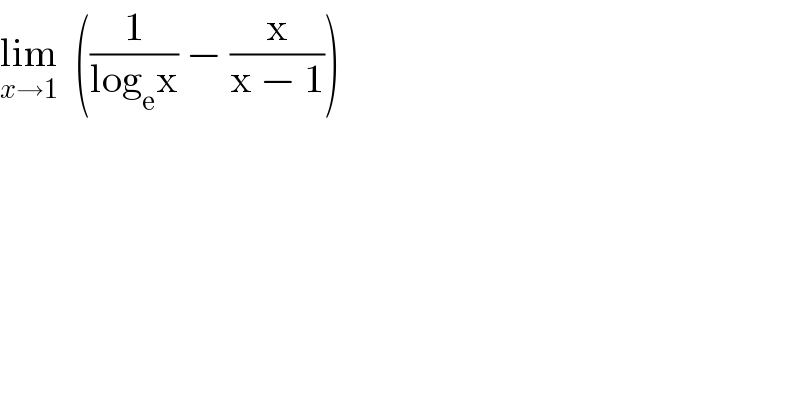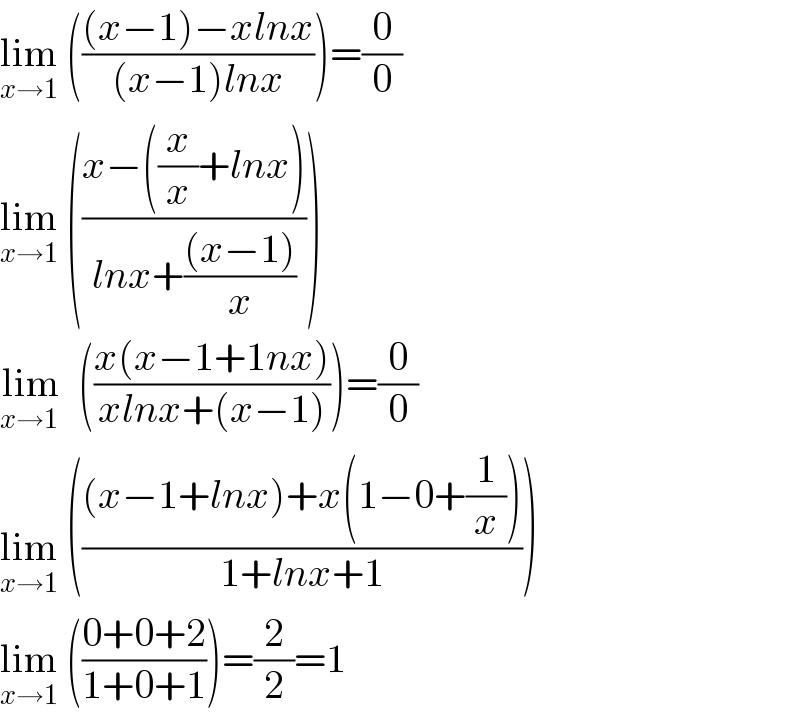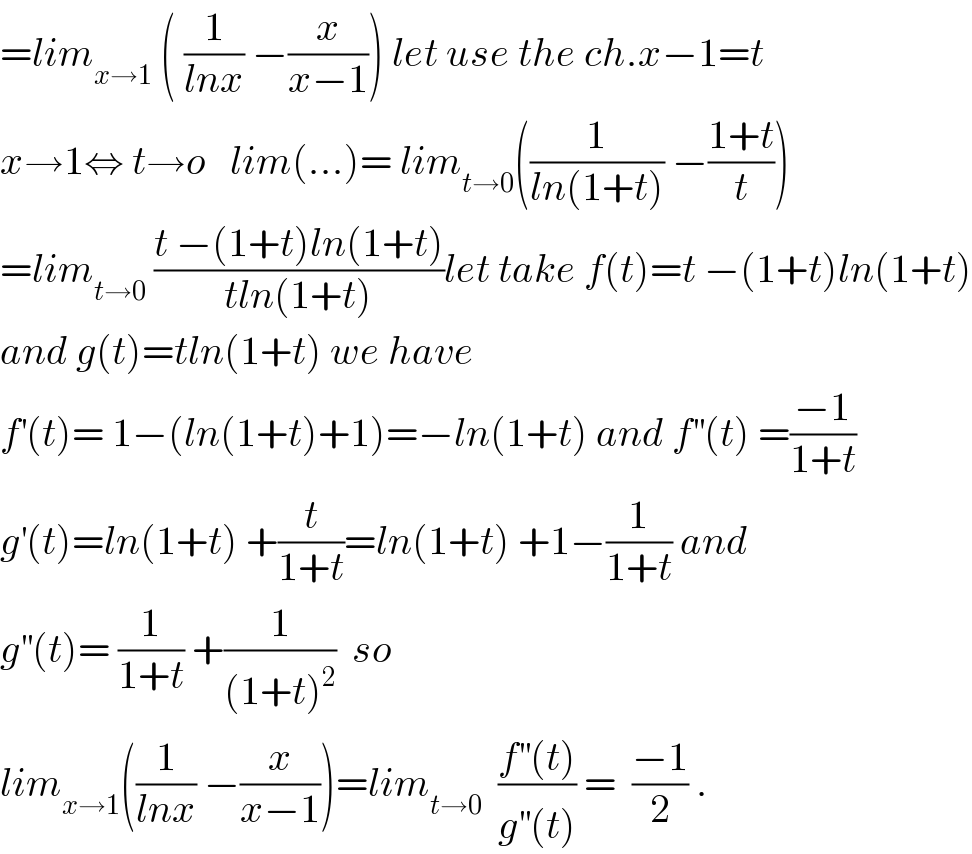
Question and Answers Forum
Question Number 28151 by tawa tawa last updated on 21/Jan/18

Commented by çhëý böý last updated on 21/Jan/18

Commented by tawa tawa last updated on 21/Jan/18

Commented by abdo imad last updated on 21/Jan/18

Commented by abdo imad last updated on 21/Jan/18

